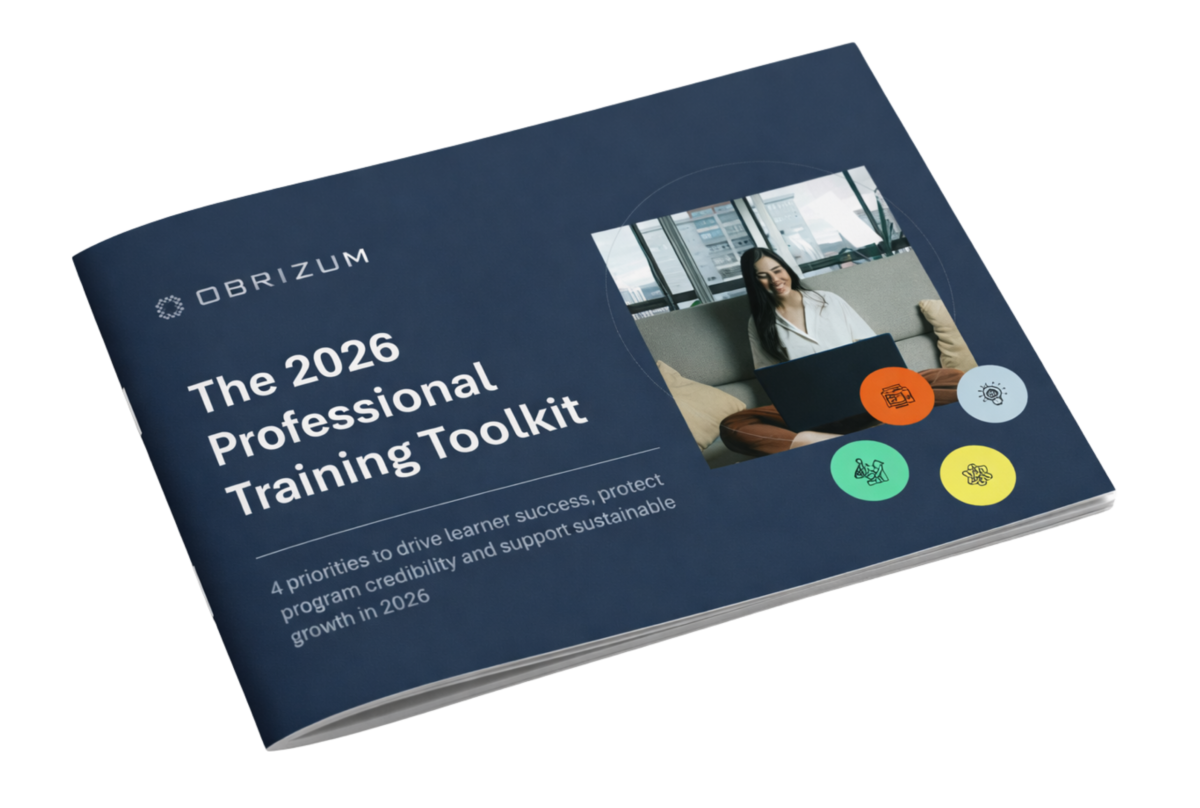
Published on 23rd July 2025
AI’s Role in Professional Training Growth: Five Areas to Watch
Insights from a recent breakfast event with leading training providers and professional bodies reveal six key ways AI is enabling scalable, high-impact learning in a changing professional landscape.
At a recent breakfast hosted by Obrizum, we brought together senior leaders from some of the world’s leading training providers and professional bodies to explore the future of professional learning and AI’s role in it.
From shifting learner expectations to rising operational pressures, the conversation surfaced both challenges and opportunities and a shared recognition that technology and AI have a critical role to play, not just as standalone solutions, but as strategic enablers of growth, adaptability, and long-term value.
Here, we share six key themes that emerged from the discussion.
- Scaling Quality Amid Resource Constraints
Training providers and professional bodies are under increasing pressure to deliver high-quality, high-impact training despite constrained budgets and limited capacity. At the same time, expectations from learners and employers continue to rise.
This environment presents a timely opportunity to explore how technology, particularly AI, can support more scalable, efficient, and insight-driven approaches to program design, delivery, and evaluation.
- Proving Value and ROI
With mounting pressure to demonstrate the impact of learning, stakeholders now expect clear evidence of how training contributes to performance, compliance, retention, or strategic capability.
This shift creates an opportunity to explore how technology and AI can support more robust data capture, analysis, and reporting, enabling providers to articulate value with greater clarity and confidence.
- Meeting the Needs of a New Learner Profile
The demographic makeup and expectations of learners are shifting. Many are entering the profession earlier, with digital-first mindsets shaped by their educational experiences. There is a growing need to understand how technology can support more adaptive, engaging, and accessible learning journeys, particularly for early-career professionals transitioning from education to the workplace.
Increasingly, these learners also expect real-time, continuous feedback to guide their progress, reinforce learning, and build confidence, reflecting the immediacy they experience in other digital environments.
- Rethinking Credentials for Career Relevance
The traditional focus on long-form qualifications is being complemented by demand for modular, stackable credentials that align with evolving career paths and on-the-job knowledge.
This shift invites exploration into how digital platforms and AI can enable more flexible, personalized, and responsive models of lifelong learning, without compromising the rigor and credibility that established training providers and professional bodies are known for.
- Turning Knowledge into Capability
There is a clear and growing expectation that training should not only impart knowledge but also support its application in real-world, technical, and strategic contexts. Technology offers the potential to enhance contextual learning through adaptive content delivery and performance-based assessments, while also freeing up capacity to invest in high-value, in-person interactions.
These human-led experiences, such as peer collaboration and community learning, remain essential for building judgment, confidence, and broader professional skills in practice.
- Innovating Responsibly in a Trusted Space
As AI becomes more embedded in learning ecosystems, professional organizations must consider how to uphold the standards, ethics, and trust that define their role in the profession.
This moment presents an opportunity to lead the sector in shaping a responsible approach to innovation, one that embraces the benefits of technology while safeguarding the integrity of professional learning and assessment.
These themes reflect not just emerging trends, but urgent priorities for training providers and professional bodies navigating change.
At Obrizum, we’re helping training providers and professional bodies respond with confidence. Our proprietary AI enables truly adaptive learning journeys, automates content delivery, and unlocks powerful insights that drive measurable impact. As expectations grow and complexity increases, we believe those who harness technology strategically will lead the next chapter of professional learning.
If you would like to find out more about how Obrizum’s true adaptive platform can be a strategic differentiator for training providers and professional bodies, please get in touch.






